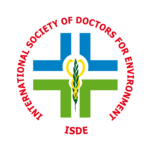
Biodiversity. Antibiotics: only when indispensable! For common respiratory infections (colds, rhinosinusitis, cough/bronchitis, flu syndromes) and bacteria in the urine without symptoms, do not prescribe antibiotics, because generally they are useless, and expose patient and family to risks, both present and future. The rule is to avoid them, leaving to doctors’ autonomy the assessment of any exception.
Microrganisms are always important, and in particular in the early years of development. Few germs are pathogenic: most of them make us live and grow in health. The above infections are mainly from viruses, against which antibiotics (AB) are useless. Even when caused by bacteria, the prognosis is usually good and AB are not needed. Doctors must discourage self-administration, and kindly resist to pressures to prescribe them, showing the results of the scientific literature. A possible alternative is the deferred prescription, to be limited to patients trained to use it only in case of exacerbation. Once an AB cycle has started, if there is a clear improvement, patients should talk to their doctors, who may decide whether to anticipate the interruption. The improper use of antibiotics, as well as ineffective and with long-term adverse effects, causes antibiotic resistance, able to persist and be transmitted to family members, with serious risks in fragile individuals and during pregnancy. In Europe, Italy has the highest consumption of overall antimicrobials (humans + animals) in mg per biomass. 30% of consumption is for human use, on which the doctor has a direct impact, 70% for animal husbandry, on intensive farms. Doctors should advise on the reduction of meat consumption, in the interest of health and the ecosystem. In any case meat must come from animals breeded in oper air. It is demonstrated that intensive breeding of animals is really responsible of so called “spillover” that is responsible of many pandemic diseases like Ebola virus, SARS, COVID-19.
Sources
1. ECDC/EFSA/EMA second joint report on the integrated analysis of the consumption of antimicrobial agents and occurrence of antimicrobial resistance in bacteria from humans and food-producing animals. EFSA J 2017;15(7):4872 - https://bit.ly/2vLISmL
2. Butler CC. Variation in antibiotic prescribing and its impact on recovery in patients with acute cough in primary care in 12 countries. BMJ 2009; 338:b2242.
3. Uranga A, et al. Duration of Antibiotic Treatment in Community-Acquired Pneumonia. JAMA Intern Med 2016;176:1257-65.
4. Bezakova N, et al. Recurrence up to 3.5 years after antibiotic treatment of acute otitis media in very young Dutch children. BMJ 2009;339:b2525.
5. Llewelyn MJ, et al. The antibiotic course has had its day. BMJ 2017;358:j3418.
Download
PDFAttention. Please note that these items are provided only for information and are not intended as a substitute for consultation with a clinician. Patients with any specific questions about the items on this list or their individual situation should consult their clinician.


Recent Comments